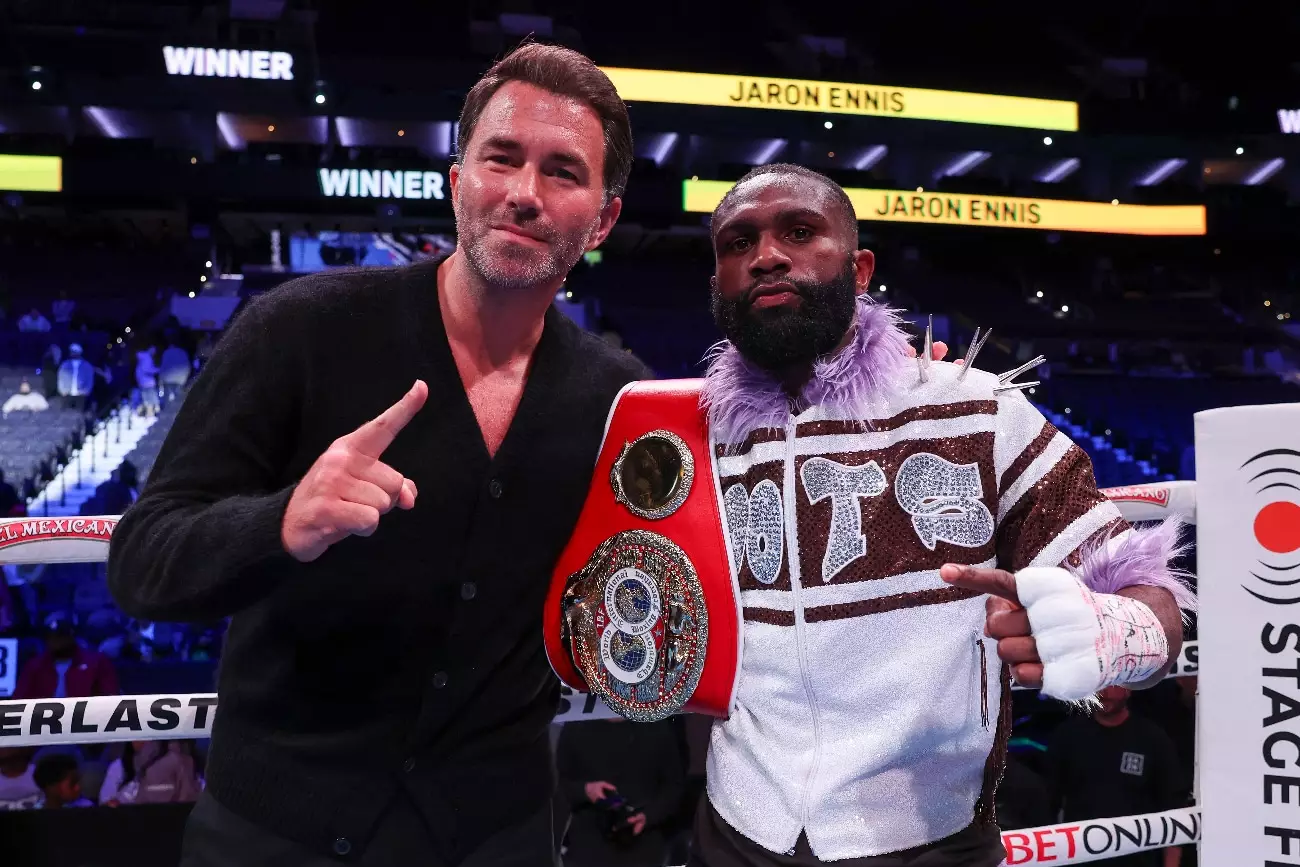In the world of professional boxing, the quest for a unification bout can often define a fighter’s career trajectory. Eddie Hearn, the outspoken promoter behind IBF Welterweight champion Jaron “Boots” Ennis, recently shed light on ongoing negotiations for a potential clash against WBA titleholder Eimantas Stanionis. While Hearn’s optimism is commendable, the stakes are high, and a successful outcome is far from guaranteed. Stanionis, with an unblemished record of 15 wins, including 9 knockouts, possesses formidable skills that could pose significant challenges for Ennis.
For a boxer like Ennis, who is currently undefeated with a record of 33-0, every bout is crucial for solidifying his legacy. His ambition to become the undisputed champion at 147 pounds hinges on three key unification fights. Securing the match against Stanionis not only represents a challenge in the ring but also an essential step toward achieving his long-term goal. But the history of negotiation struggles could loom large, as evidenced by Hearn’s earlier attempts to secure a matchup with WBO welterweight champion Brian Norman Jr., which faltered due to financial disagreements.
If the match materializes, it is likely to be a fascinating clash of styles. Stanionis is not just any opponent; his power and technique could very well disrupt Ennis’s rhythm, forcing him to adapt in ways he has not previously experienced. Reliably, the boxing community is buzzing with speculation on whether Ennis can rise to the occasion. However, lingering doubts about Ennis’s performance against his IBF mandatory challenger, Karen Chukhadzhian, paint a concerning picture. In that contest, Ennis appeared to struggle and earned a lackluster unanimous decision, raising questions about his readiness for higher stakes.
Eddie Hearn’s candid commentary on the financial logistics surrounding these bouts signals a looming crisis. Boxing is not just about what happens within the ring; it’s a business, and without lucrative offers, dreams can be dashed. Should Hearn fail to bridge the financial gap between Ennis and Stanionis, the conversation around Ennis’s future will take on new urgency. Transitioning to the 154-pound division might become a necessary consideration. The welterweight landscape could become unbearably stagnant, and Ennis’s time in boxing might dwindle if he remains stuck fighting for titles that fail to ignite public interest.
Ultimately, if Ennis aspires to elevate his profile, the necessity for unification bouts cannot be overstated. They are not just milestones; they are critical for his legacy and marketability. However, the fighters he seeks to dethrone at 147 carry little name recognition with casual fans, raising questions about how these scenarios benefit him. As a result, a unification match against Stanionis or similarly ranked opponents could represent not only a measure of skill but also a vital strategy for reaching his potential. The stakes are high, both for Ennis’s aspirations and Hearn’s promotional credibility. The outcome of this negotiation will be closely watched in the boxing world.

